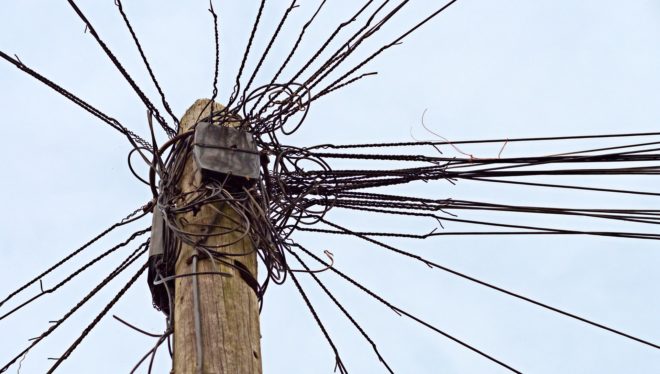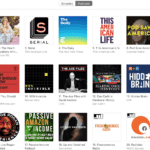Have we reached “peak podcast”?

Last updated on July 26th, 2017
It starts with a tweet. Marketplace Weekend host, Lizzie O’Leary posed the question, “how will we know when we hit peak podcast?”
How will we know when we hit peak podcast?
— Lizzie O’Leary (@lizzieohreally) June 2, 2017
The responses are fairly telling. Some take the latest podcast growth stats that claim only about 45% of the US population has listened to a podcast. Fair. Some take a more comedic route and say “when Dollar Shave Club runs out of razors to sell.” Funny, but it has an underlying point about advertisers support for podcasts.
Regardless of your take on the “when”, what’s more important are the consequences and implications of what “peak podcast” would entail. Would it really matter if we could point to April 27th, 2021 and say that’s the date where we hit peak podcast? Or is the more important question: if podcasts continue to grow at such a rapid pace, will there be a manageable and sustainable market for them?
Peak Podcast Growth
To over-simplify it, this is a basic a straightforward case of supply and demand where both sides are growing incrementally. More people are listening to podcasts than ever before, and unsurprisingly, there are also more podcasts than ever before.
Podcasts are growing rapidly for a number of reasons. Most prominently:
- Low barrier of entry — only requires a mic and the internet to produce something
- Lack of censorship / need for broad appeal — due to low barrier, you’re not reliant on advertiser demands nor do you need to appeal to a large audience. Niche podcasts are increasingly popular
- Engagement levels — 86% of people listen to the entire podcast
- Appeal — new content channel to reach consumers and the appeal of streaming directly into an ear
I can’t stress enough how crucial the low barrier of entry is to the industry. If you’re old enough to remember, this is following a similar route in the early website days when you could simply buy a domain and throw some html onto a page. Except, you don’t even need to know any programming skills to start your own podcast!
As I interview podcasters in the Podcast Spotlight series, one thing has become very clear: people are more than comfortable creating ultra-niche podcasts that will cater to a small segment of the audience.
Podcast Discoverability
The ballooning number of podcasts does have some very real and tangible negative effects, however. I’ve written (and several others have as well) ad nausea about the issue with discovering new podcasts. The charts are self-serving, the rich get richer, yada yada.
New podcasts entering the market on a daily basis expound upon this problem. Every new entry makes it that much harder for existing podcasts to find new listeners.
But, really, who feels the pain of podcast discoverability the most? Sure, as podcast listeners it’d be great to find new podcasts that we’ll enjoy. But ultimately, the threshold for discoverability will increase and the pain will be felt by the indie, new, upcoming, and niche podcasts.
Who Wins, Who Loses?
Podcast Listeners
Podcast listeners are real winners here, in nearly every regard. Sure there might some podcast search fatigue, but listeners will have more options (universally a better thing) and podcast quality will likely increase (good) with a raised threshold to get noticed.
So yes, peak podcast will give listeners more better options, big win.
Podcasters
It’s going to get harder for new podcasters to enter the market and expect an audience. Podcasters will continually need to differentiate themselves by improving the listener experience, podcast quality, storytelling, analysis/insights, guests, and more.
The low barrier of entry I mentioned earlier will still technically be there, but there will be added challenges in gaining an audience.
Advertisers
This is a tough one to grade, honestly. While sure there will be more podcasts and more listeners, it might be tougher to make purchasing decisions as the audience is likely to be more disconnected.
Podcast Marketing Services
Congrats on the new market, fellas.
Apple
Apple’s another hard one to peg as a winner or loser. Well, they definitely won’t be a loser. However, they might actually have to invest real resources into consolidating the podcast library, governing ad buys, and providing consistent user analytics.
If Apple continues to drag their feet and slowly innovate what is still the overwhelming market leading podcast app, it further opens the possibility for a start-up to own the hosting medium. They’ll always have a massive advantage with the Podcast app coming native on every iPhone, but if they continue to rest on their laurels others will be eager to gobble up some market share.













Comments
Comments are closed.